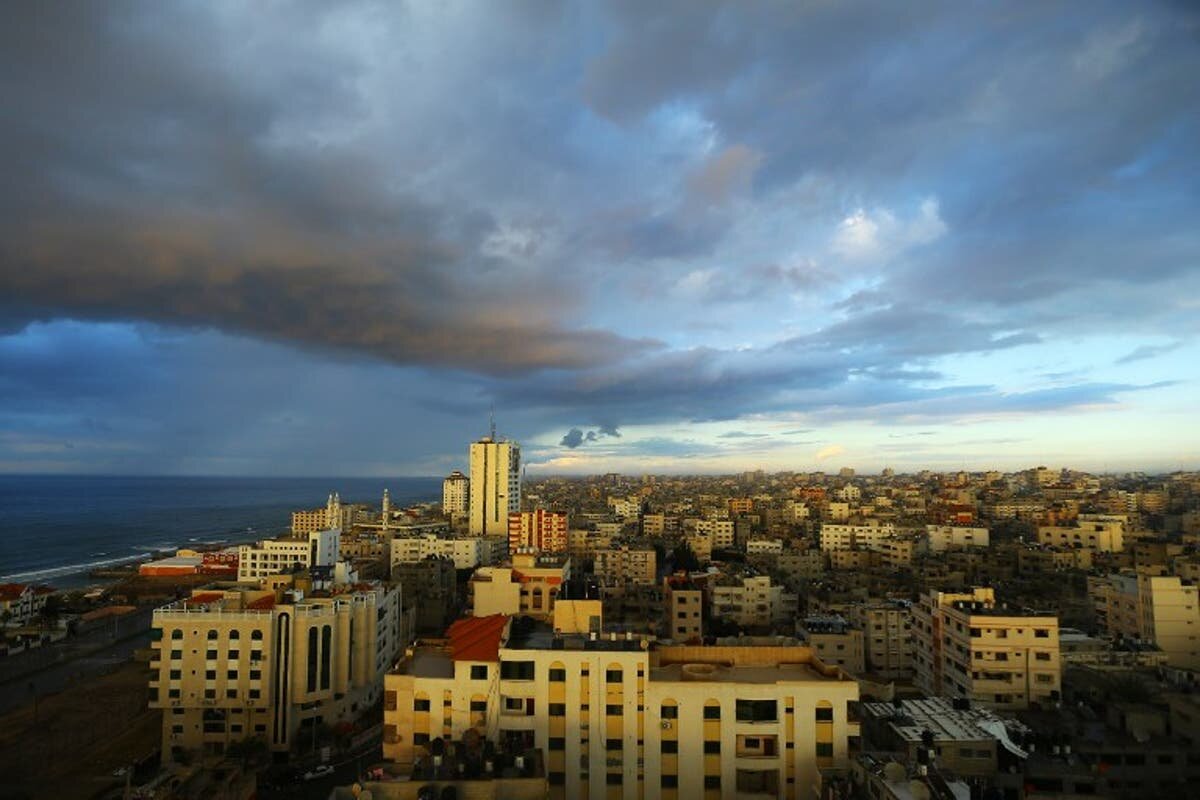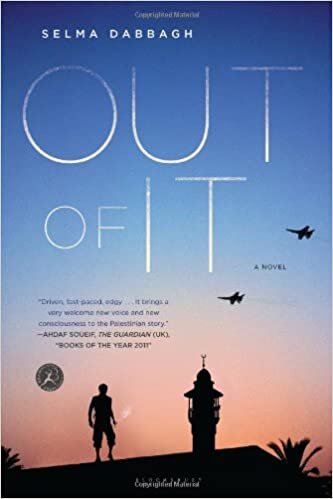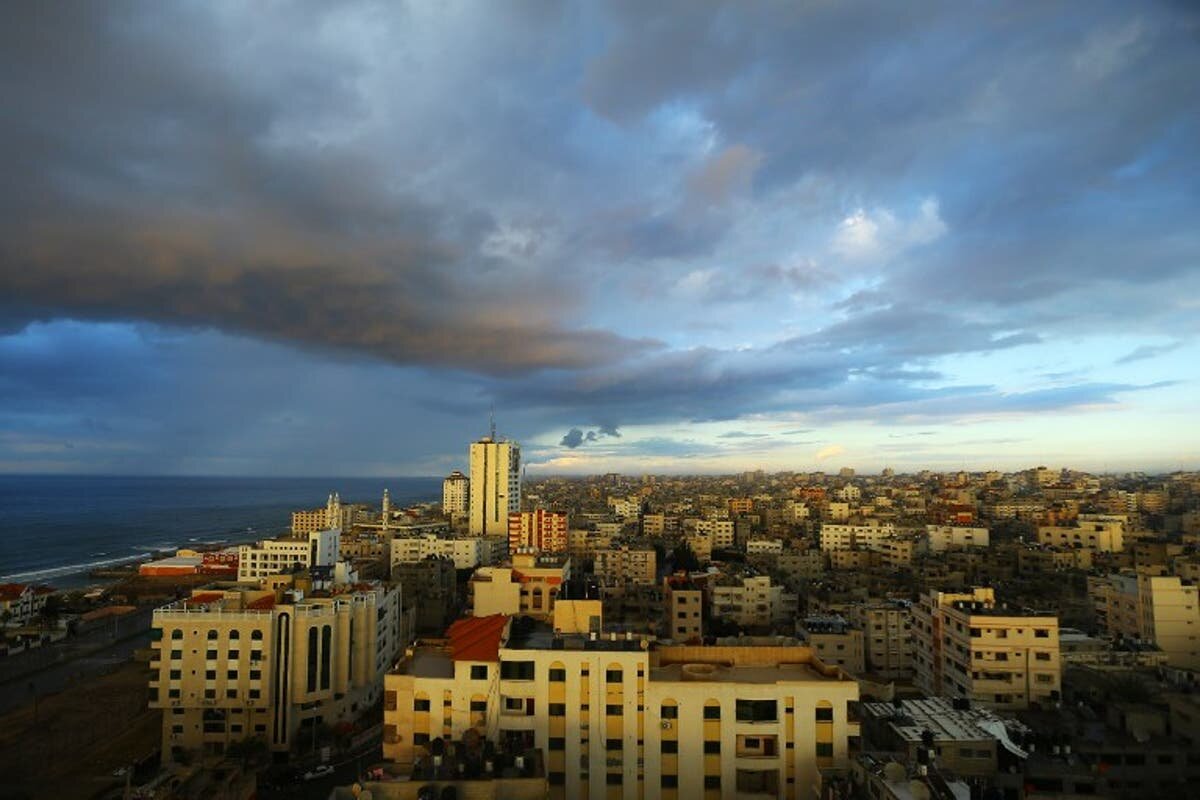
Sometimes you just have to get away, leave home, leave everything you know. This couldn’t be more true for those who grow up beneath the bombs…
Excerpted by special arrangement with the author, in this early chapter of Selma Dabbagh’s debut novel, Out of It, Gaza is being bombed. Rashid — a young, clever Palestinian — has been smoking grass on the roof watching it happen when he gets the e-mail he has been desperate for: he’s won a scholarship to London. Rashid’s sister, Iman, frustrated by the atrocities and inaction around her, is beginning to take an interest in an Islamic resistance group. Sabri, their intellectual older brother, is working on a history of Palestine from his wheelchair while their mother pickles vegetables and feuds with the neighbors.
Out of It follows the lives of Rashid and Iman as they try to forge places for themselves in the midst of occupation, the growing divide between Palestinian factions, and the rise of fundamentalism. Written with humanity and humor, moving between Gaza, London and the Gulf, the novel helps to redefine Palestine and its people.
Selma Dabbagh
These were terrible times, but the email changed everything.
The night before the flares had started at around eight, Rashid was sure of that much. Before them, there had just been the insistent tattering of gunfire somewhere in the background. His perception was cushioned and brightened by Gloria’s leaves by then, so that when the flares actually kicked off, he had been stoned, making the dry air fill with toxic smoke and the falling lights squirm around on his eyeballs long after they had faded.

By the time the heavy stuff (Baadoom! Baadoom!) had pounded in on them he had been well and truly blitzed and in that state he sometimes found himself almost willing those bottom-of-the- stomach explosions to burst forth after all that stuttering gunfire: Just do it, why don’t you? Go on, come out with it! There had been one missile with a light so bright it lit up the whole strip, right up to the fence. Smoke had blown back at the sky and seeped along the ground close to the lights.
The strike on the hospital was possibly half an hour after the flares, maybe more. It felt as though it had taken out his guts with it. That could have been when he had really lost it. There was a vivid point of being where he had let himself go. It was imprinted on his mind, an instant of reaching in his soul, when he had found himself leaping up on the roof next to the water tanks, teasing the locust heads of the helicopters. Hey you! Can you see me? Here on the roof! Can you see me?
That was the moment. He could not remember anything after that. That was it. Blank. Stoned, utterly stoned. The thickness of it was still there like a fungus under his forehead.
He had awoken with his legs splayed out under his bed in imita- tion of a shot man, face and floor tiles sealed together by a membrane of spittle. He came to with a headache, that told him that he should suffer as he was a disgrace, was good for so damn little and so on and so forth.
This had been when he woke up.
But now, fifteen minutes later, he was something new and some- where different. He no longer cared about any of the indignity that could be associated with passing out under his bed. All that was before he had logged on and downloaded. Before finding it there. Having it here.
The email had changed everything. He had been transformed.
Now he stood in front of the bathroom mirror, bare to the waist, face wet, arms spread. Supreme.
Here he was, reflected back at himself: the eternal man in a body of youth. His forearms, face and neck were darker than the rest of him, but Rashid ignored the sallow skin that created the ghost of a T-shirt over his chest, the one that cut across his arms. He disregarded the underdeveloped muscle tone and there were days when he would think the word wasted, wasted, and feel his flesh shrinking under the surface of his skin. This was a morning when he saw only his collarbones that framed it all, the swoop of biceps and triceps on his arms, the stomach definition that needed no work for it to stay like that and the scrub of dark hair from his navel down to his jeans. ‘Pathway to heaven,’ Lisa had said tracing along it with her fingertip, ‘path- way to heaven.’
And at the thought of her, her laugh, Lisa! It exploded within him again and he could feel himself fly, up, up, out of all of this.
See himself fly, an Olympic diver in reverse, Icarus in the sky, Jesus on a hill – it was all confused – fly up, out, over all this.
All this what?
All this bonery. He knew how the earth would look from up there: like dried-out coral, ridged, chambered and sandy. He knew as he had traced his finger over the satellite pictures of it when dreaming of escape. From up there it was hundreds and thousands of habitations reduced to scratches on a bone. At that height, the line that fenced them in would barely be made out, nor would the checkpoints, not from up there, but even from that stratospheric distance, the contrast with the other side would be stark. On the other side, that side, the place they came from, that had been theirs, the one that they weren’t allowed to even visit any more, it wasn’t bones, but a blanket: an elaborate blanket of modernist design. It was patterned with rows, circles and stripes, each shape coloured absolutely as though painted with the tip of a cursor and the press of a button. Mud brown here, a dash of hunting green there, some rust-coloured lines for border definition. That side glinted. Solar panels and swimming pools twinkled in the sun.
To hell with them.
To hell with them. He was out of there.
Flip, flip, flip for he doesn’t fly, he is flipping now over the sea, the White Sea, al bahr al abyad, the Mediterranean, and it’s so blue and alive with fish and dolphins leaping, leaping like him: over, up, out of it all, into the sky and away.
Right the hell out of there.
Out of here.
For ever.
Well, at least for a year.




